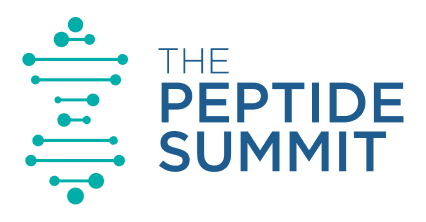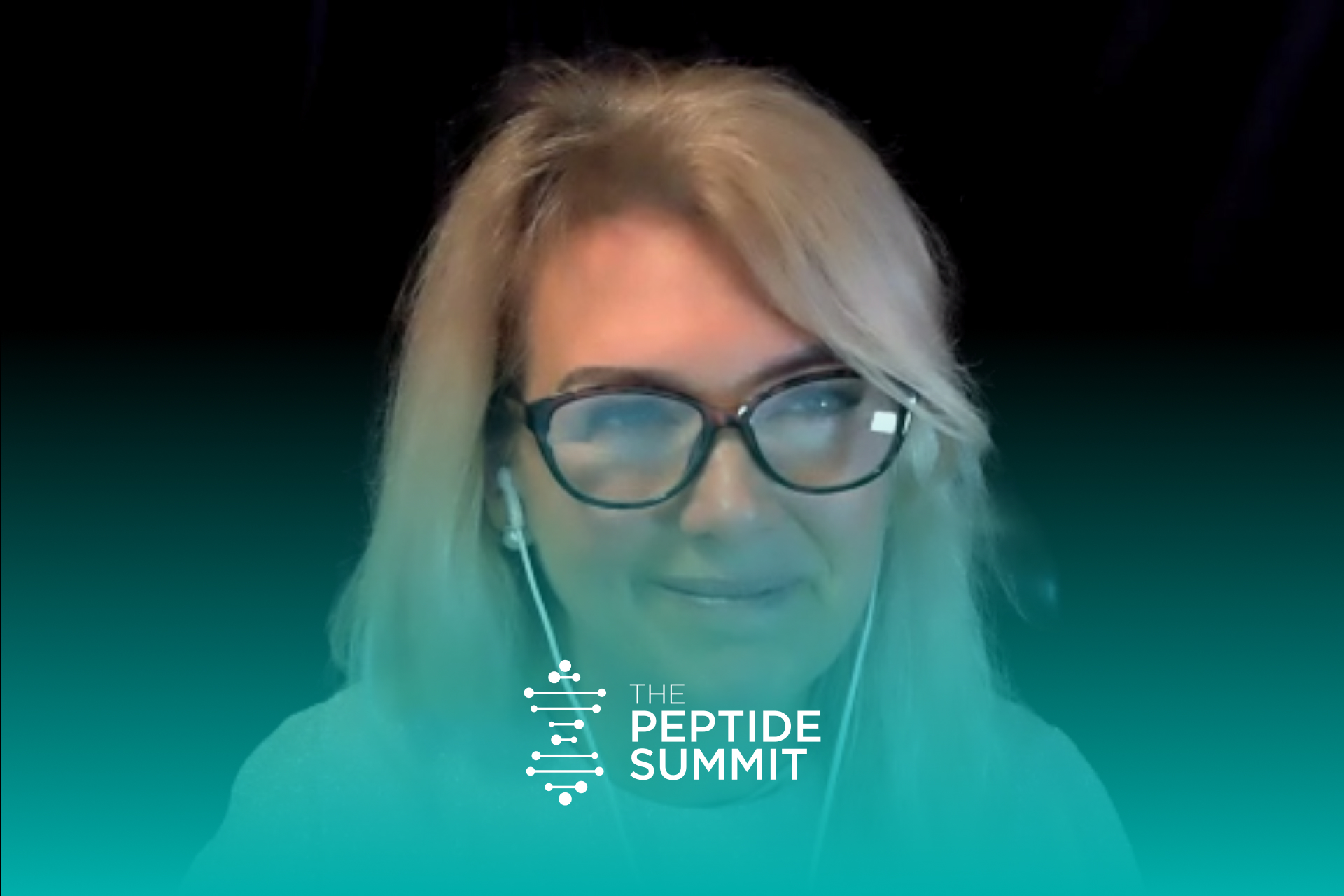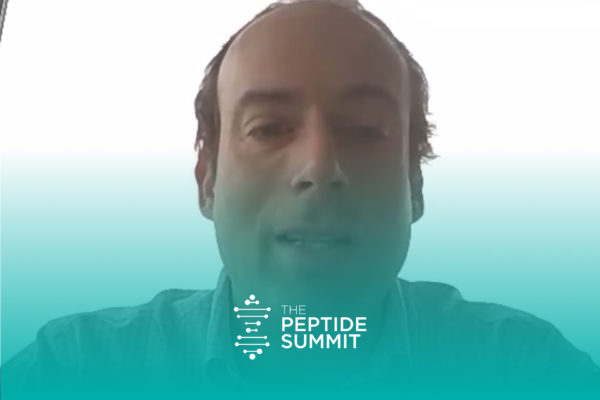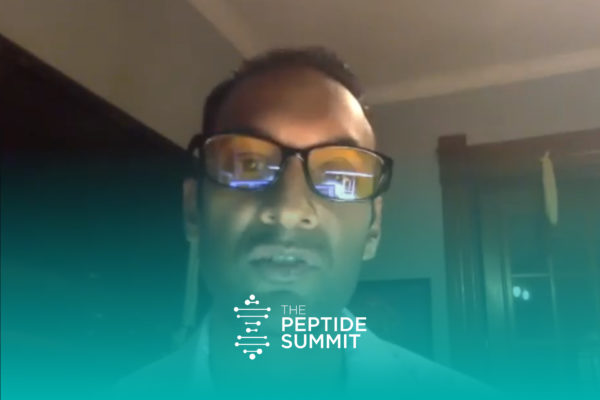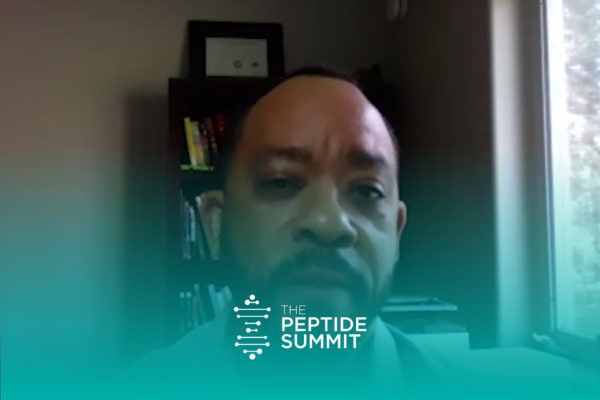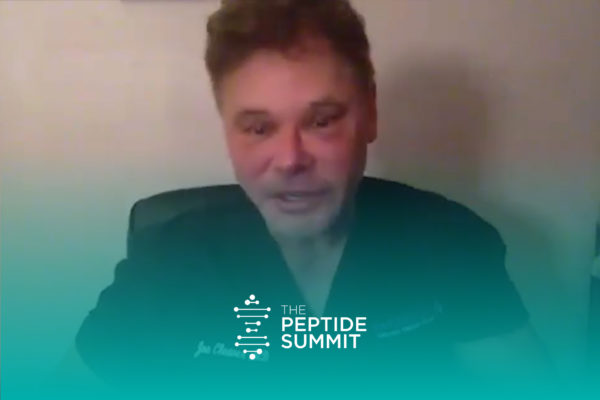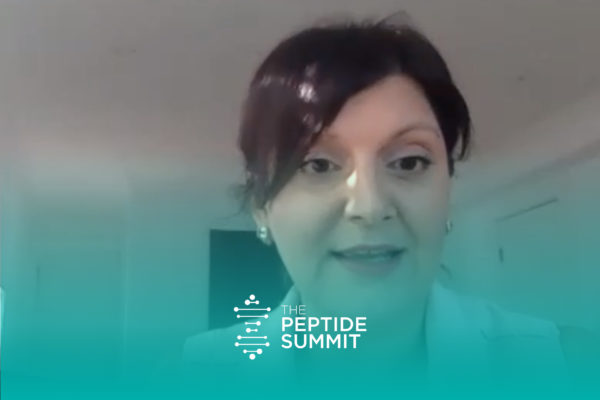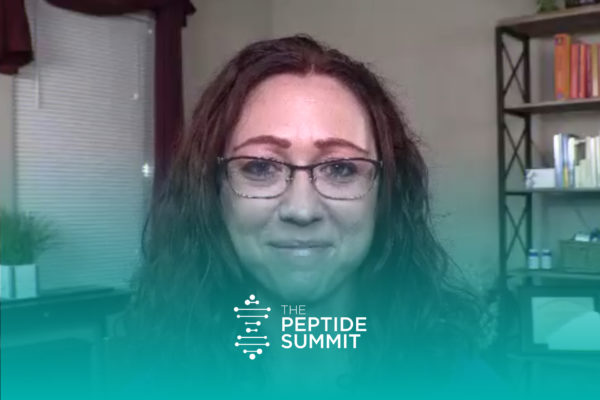Join the discussion below
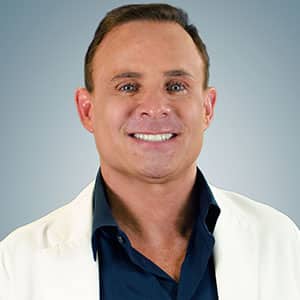
Kent Holtorf, MD is the medical director of the Holtorf Medical Group (www.HoltorfMed.com) and the founder and medical director of the non-profit National Academy of Hypothyroidism (NAH) (www.NAHypothyroidism.org), which is dedicated to the dissemination of new information to doctors and patients on the diagnosis and treatment of hypothyroidism. He is... Read More
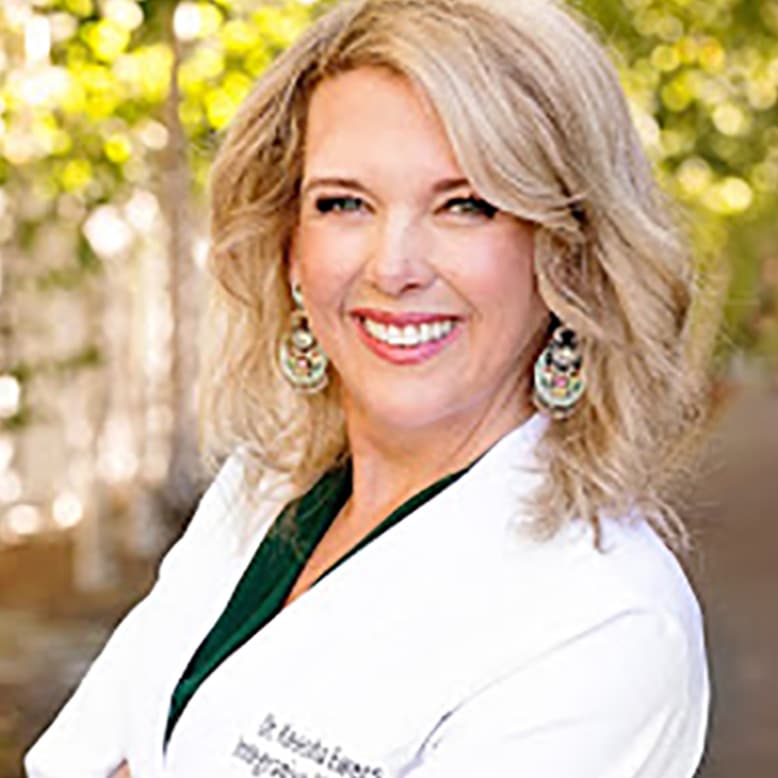
Keesha Ewers, PhD, ARNP-FNP-C, AAP, IFM-C
Dr. Keesha Ewers is an integrative medicine expert, Doctor of Sexology, Family Practice ARNP, Psychotherapist, herbalist, is board certified in functional medicine and Ayurvedic medicine, and is the founder and medical director of the Academy for Integrative Medicine Health Coach Certification Program. Dr. Keesha has been in the medical field... Read More
Join us as Dr. Keesha Ewers, Psychotherapist, Integrative Medical Expert, and Best-selling author discusses specific psychological and emotional impacts on disease states. Dr. Ewers reveals effective techniques and available treatments to help us on the road to recovery from emotional conditions, including surviving the post- election blues.
Related Topics
PeptidesKent Holtorf, M.D.
Hello, it’s Dr. Kent Holtorf with another episode of the peptide summit. Today we are pleased to have Dr. Keesha Ewers. She’s going to talk about how to reverse emotional trauma, induced autoimmunity, anxiety, depression, and post-traumatic stress disorder with peptides and really kind of a whole spectrum program on how to help everyone. So many people have these paths of emotional traumas that you may or may not know. I was just kind of doing some background research on it and I was just fascinated. I’m like, “Man, a lot of people need this help.” So I really think this is gonna be a really educational time here. So I’m so happy to have Dr. Keesha with us. Thank you.
Keesha Ewers, Ph.D, ARNP-FNP-C, AAP, IFM-C
Oh, thanks for having me. Yeah.
Kent Holtorf, M.D.
Great, Great. So, Keesha is an integrative medical expert, she’s a doctor in sexology, family practice. She does psychotherapy, so psychotherapist and herbologist. She’s board certified in functional medicine and Ayurvedic medicine and a standard medical director of the Academy of Integrative Medicine health coach certification program. That’s a hot thing right now and she trains people for that. She’s been in the medical field for over 30 years. After conducting the HURT study in 2013, which is Healing Unresolved Trauma, she developed the HURT model for understanding how past childhood trauma impacts health. [Inaudible] creation of the You Unbroken online program for patients to heal their own trauma in the mystic medicine, deep immersion healing retreats that she leads in her home in San Juan Island, Washington.
She’s a popular speaker, including at Harvard, from the TED Talk stages and best selling author of Solving the Autoimmune Puzzle. And she’ll really put together how we say psychological and emotional is different than physical. I mean, it’s neurons firing and everything’s a vicious cycle, we’ll get into that. Best selling author of Solving the Autoimmune Puzzle, the Women’s Guide to Reclaiming Emotional Freedom and Vibrant Health, The Quick and Easy Autoimmune Paleo Cookbook, anti-inflammatory recipes with 7 ingredients or less for busy people, and Your Libido Story: a workbook for women who want to find, fix, and free their sexual desire—perked up everyone’s ears there. You can listen to her mystic medicine radio show and find her programs at www.drkeesha.com. Well, thank you.
Keesha Ewers, Ph.D, ARNP-FNP-C, AAP, IFM-C
Thanks for having me.
Kent Holtorf, M.D.
You’ve done a lot. It sounds like you’ve helped a lot of people and, again, we’ll get into this. I mentioned I was doing a little background research and looking at some of the studies and it’s very clear how childhood trauma just affects future health and emotional wellbeing, and everything’s a vicious cycle. Breaking families out of the cycle is just such a big problem. How did you get into this? What led to this?
Keesha Ewers, Ph.D, ARNP-FNP-C, AAP, IFM-C
Well, I started out at the age of 19 as an RN in the intensive care unit and was humming along for 10 years, doing that, having 4 children, raising them, running marathons. I was quite a—my friends called me the Energizer bunny, very busy. This is how my patients describe it too, “all of a sudden” I got sick. It was one morning I woke up, I had 10 pounds of extra weight over my joints. They were red, they were inflamed, swollen. I was in so much pain and it was like someone had taken the batteries out of the Energizer bunny. I was just flattened. Yeah, so I got in and my doctor said, “So is there any autoimmune disease in your family history?” And I said, “Yeah, I think my grandfather had rheumatoid arthritis.” In fact, I’m 55 now and my grandfather died at the age that I am with it, was in a wheelchair.
Kent Holtorf, M.D.
Wow.
Keesha Ewers, Ph.D, ARNP-FNP-C, AAP, IFM-C
And she said, “Well…” Ripped two prescriptions off her pad, one was for methotrexate, one was for a nonsteroidal anti-inflammatory drug, said, “When you get worse”—not if—”Come back and we’ll change your meds.” I mean, that was it, right? I said, “Well, hang on, hang on, hang on. I actually cook my own food. I’m very disciplined. I run, I’m very healthy. What else is there?” “I’m sorry dear, you have drawn the short end of the genetic lottery.” Right? “This is it.” Then she just kind of closed the book, put it on the shelf. So on my way home, I remember thinking my model of medicine has no answers for me, but there must be something out there. So I went into PubMed and started looking for research, and I found an article on yoga and autoimmune disease and really good outcomes.
So the next day I went to my first yoga class and the yoga teacher, during that class, actually said this one word and enough about it, that I got curious. I went home and looked it up and it was Ayurveda. Ayurvedic medicine is the sister science of yoga. It’s 10,000 year old sister science out of India. When I went and looked it up, I thought, “Oh, this explains so much.” Because all those years ago, they actually understood that we’re not all the same, that every medication that you give is not going to behave in the same way in every single body, that we can’t all be on the same diet. Like all this—it started unfolding and I thought, “Oh, this is why this person died in the ICU. And this is why this…” This makes so much sense. And then I read that Ayurveda says that autoimmune disease is undigested anger. I just remember sitting back in my chair and looking at the computer, kind of pissy, like—I’m not an angry person!
Kent Holtorf, M.D.
You go to anger management course and a friend of mine, and it makes him too angry to go.
Keesha Ewers, Ph.D, ARNP-FNP-C, AAP, IFM-C
Right. So I thought, “Oh, maybe this is the problem that I don’t allow myself to feel angry. I go running instead. I don’t actually digest my feelings.” This idea of digesting your emotions, your memories, your feelings, your experiences was completely alien and foreign to my way of thinking. Of course, that’s not the way we think in our culture and in our model of medicine. So I thought, “Huh!” So I learned how to meditate while I was taking yoga and one day I was sitting there thinking about the word autoimmune and I thought, “Gosh, autoimmune means I’m attacking myself. I am actually killing myself in a societaly acceptable manner.”
Kent Holtorf, M.D.
A lot of people do that, you’re making me think. Yeah.
Keesha Ewers, Ph.D, ARNP-FNP-C, AAP, IFM-C
I thought, “So, why do I want to die? Because in this moment I don’t. So when is the first time I wanted to die?” And this was a very, very important question. Instead of, how do I get out of my suffering as quickly as possible, I started asking this question: when is the first time I wanted to die? Why do I wanna die? I started tracing my memories backwards, looking for this undigested anger root cause. I found this 10 year old little girl version of myself who was being sexually abused by the vice principal of my elementary school. I looked at her, sitting in QS, Florida on this balcony in Navy housing under a Palm tree and she really wanted off the planet. Did not understand anything that was going on, had no language to convey what was going on, just didn’t understand anything. I remember thinking that has to have something to do with this disease I have right now. And sure enough, science tells us that. When I started really working at that level, my RA went away within six months. I never did go on those medications and it’s never been back.
Kent Holtorf, M.D.
Wow. What did your rheumatologist say? “Well, see what these meds do, see how great they are.” Yeah. Yeah.
Keesha Ewers, Ph.D, ARNP-FNP-C, AAP, IFM-C
I never took them.
Kent Holtorf, M.D.
Yeah. I mean, that’s what I’m saying.
Keesha Ewers, Ph.D, ARNP-FNP-C, AAP, IFM-C
Yeah.
Kent Holtorf, M.D.
Did you go back to her and tell her, “Hey, it’s gone”, or did you just move on?
Keesha Ewers, Ph.D, ARNP-FNP-C, AAP, IFM-C
No, I just moved on. Yeah. Because I was already in—I signed up and applied for graduate school, started learning about Ayurvedic medicine. I thought, “Gosh, I’ve worked in the intensive care unit and then hospice, and in these two arenas of medicine, it’s actually pretty darn good care, but the average person does not get that kind of integrative model. So I want to go back to school and bring that so that you’re not on a ventilator or in your last 6 months of life, that we can actually address this piece of it and heal it.” So I started on a journey back to several graduate school programs, as I learned the skills to be able to do exactly that. That’s what I do today.
Kent Holtorf, M.D.
Wow. Well, that’s really neat. It’s kind of a shame at the same time when I talk to so many so called integrative—I don’t know what we call ourselves, you know? They have to get sick before they realize—ssame with me.
Keesha Ewers, Ph.D, ARNP-FNP-C, AAP, IFM-C
Yeah.
Kent Holtorf, M.D.
It’s ingrained in medical school that anything alternative is quackery. It’s no evidence and it’s really the opposite. And you said that, Hey, everyone’s different! The whole system now is getting away from everyone being different where it’s big data, this works—
Keesha Ewers, Ph.D, ARNP-FNP-C, AAP, IFM-C
Evidence based.
Kent Holtorf, M.D.
So if it doesn’t work for you, then it’s your fault.
Keesha Ewers, Ph.D, ARNP-FNP-C, AAP, IFM-C
The studies are funded by the pharmaceutical industry. So it’s in that model of match pill to ill or just symptom management instead of really getting to the root of why the nervous system is firing and causing this breakdown.
Kent Holtorf, M.D.
Yeah.
Keesha Ewers, Ph.D, ARNP-FNP-C, AAP, IFM-C
Yeah.
Kent Holtorf, M.D.
Anything that isn’t standard dogma, [inaudible], like “See there’s nothing published!” Well, because what are the journals funded by? The drug companies. They do the ads, you know?
Keesha Ewers, Ph.D, ARNP-FNP-C, AAP, IFM-C
Right, right.
Kent Holtorf, M.D.
But yeah, so in doing a little background, again, I just became more and more amazed and I can just picture so many patients that I have and people I know really having these issues. I think it’s something like 2/3rds of kids have had a significant traumatic—and 1/3 like multiple. It seems to me like ongoing would be worse and which seems to fit in real life for me, like patients that have been sexually assaulted seem to have the worst symptoms. Is that true?
Keesha Ewers, Ph.D, ARNP-FNP-C, AAP, IFM-C
That’s where the ACEs study, the Adverse Childhood Experiences study, came out of. The Kaiser Permanente had a weight loss clinic and it was a really good program. People were losing their weight and getting what they needed out of it. But a certain percentage of them were dropping out, even though they were successfully losing weight before they got to the end. So the clinic director decided to take a look at that and call people back in and ask why they’d stopped, and a large percentage of them had sexual abuse in their past. The thing of it is, is there are capital T traumas, adverse childhood experiences that are capital Ts, and those are the ones that you’re mentioning. Violence, sexual abuse, but there are also lowercase T traumas that actually have the same exact changes in brain architecture. In other words, shrinkage of prefrontal cortex or adult brain and growth in the volume of the amygdala, or our limbic primal reptilian fight and fire.
Kent Holtorf, M.D.
That fear signal.
Keesha Ewers, Ph.D, ARNP-FNP-C, AAP, IFM-C
Exactly. And that’s really interesting. There was a study that was done by mole and group, and what they found is people that identified as being chronically overwhelmed on a perceived stress index had the same exact brain changes as someone that had PTSD from any of the capital T traumas of abuse, neglect, abandonment in childhood. So that’s alarming because I don’t have a patient that doesn’t identify as chronically overscheduled, and overwhelmed, and stressed out.
Kent Holtorf, M.D.
Then I think too, it seems no matter how they perceive it, right?
Keesha Ewers, Ph.D, ARNP-FNP-C, AAP, IFM-C
That’s it, it’s all about perception.
Kent Holtorf, M.D.
Yeah. You have the worst thing happen to you and you go, “Well, I’ll move on.” Again, it becomes a vicious cycle and that actually changes brain—not only chemistry, but architecture, like you’re saying.
Keesha Ewers, Ph.D, ARNP-FNP-C, AAP, IFM-C
Yeah. Changes the actual brain structure by shrinking and putting holes in the very part of your brain that is in charge of executive decision-making and impulse control. [Laughing] So—
Kent Holtorf, M.D.
Yeah, so much for sticks and stones, right?
Keesha Ewers, Ph.D, ARNP-FNP-C, AAP, IFM-C
Yeah. Yeah.
Kent Holtorf, M.D.
Wow. So, yeah. How does this typically manifest itself as children get older?
Keesha Ewers, Ph.D, ARNP-FNP-C, AAP, IFM-C
Yeah. So according to the Adverse Childhood Experiences study, which was done by Kaiser and the CDC or Center for Disease Control, it was the largest study of its kind, over 17,500 participants that were Kaiser enrollees, they asked, “Before the age of 18, did you experience any of these 10 capital T traumas?” And if you said yes to one of them, you had an ACE score of one, if you said yes to two, you had an ACE score two, and so on. What they discovered is the higher the number of ACEs, the higher your risk of any of the chronic illnesses we see in our culture today, including autoimmune disease, which is now the number one cause of death in the United States. Now heart disease still holds the prominent position, but now we’re starting to relabel some of the parts of heart diseases as autoimmune. [Laughing] So it’s like, wow, right?
Kent Holtorf, M.D.
We’re finding that so many things—even osteoporosis, autoimmune disease.
Keesha Ewers, Ph.D, ARNP-FNP-C, AAP, IFM-C
Exactly. Yeah. Type 2 diabetes used to not be thought of as autoimmune, now it is. We have over 150 kinds of autoimmune diseases, 80% of which are diagnosed in women.
Kent Holtorf, M.D.
Wow. And that’s how we see—and I see such a commonality of—when I was on your summit, we talked about this, how it really shifts the immune system. Where normally there’s basically TH1, which gets up inside the cell, TH2 gets stuff outside the cell, they’re balanced. When we look at autism, autoimmunity,
chronic fatigue, fibromyalgia, chronic Lyme, really even just aging to some degree, cardiovascular disease, is that it shifts. This TH1 is too low, TH2 is too high, and it’s just inflammation, you know? So they go, “Oh, you’ve got some inflammation”, but the key is so they treat it up here, they treat the end point instead of fixing the underlying problem.
Keesha Ewers, Ph.D, ARNP-FNP-C, AAP, IFM-C
Exactly. It is. So much of this is about the way that your nervous system is set up to respond to the things that are happening in your external environment. And that happens in childhood. No matter if you have sexual abuse or you have had an experience—and every single human has—of rejection or betrayal or not feeling like you’re good enough. Which is what my study showed. The Healing Unresolved Trauma study actually went through these distinctions of, “You know what? It doesn’t matter if it’s not sexual abuse or violence.” There are these other things that also make a difference because it’s about your perceptions.
Kent Holtorf, M.D.
Yeah.
Keesha Ewers, Ph.D, ARNP-FNP-C, AAP, IFM-C
So some of the people I’ve done therapy on like the very worst thing that happened to—I remember a woman one time who came to me with Hashimoto’s thyroiditis, she was the third in three sisters as she was growing up and she never got anything new in her perception and her memory, maybe she did, but she didn’t feel like she ever did. She wore hand-me-downs the entire time she grew up. That was this major trauma for her. So people do this comparison of, “Oh, well, I had a pretty good childhood.” I’m always so glad to hear that, but I always say everyone’s had trauma because we’ve all had these places where we’ve been rejected, or felt betrayed.
As a biological being, we are programmed to understand that in tribal days, if you were put on the outside of the firelight circle, rejected from the tribe, then that meant the saber tooth tiger could eat you. So it was experienced as a very big trauma. So that’s the thing, is really understanding that these moments, these hurts, they actually start the way that your nervous system responds. They’re associated with a feeling, a meaning you made up. And here’s the thing Kent, we don’t have our prefrontal cortex completely formed until we’re 24 years old, 24 to 26. So the meaning making that we’re generating when we’re small children—we’re small humans trying to discover how to be okay in a world dominated by big humans who are telling us how to be a human.
So the meaning making that we generate as we’re growing up is done with a brain that’s not fully formed. So it’s going to be very self-centered because children are self-centered, they’re supposed to be, they’re trying to figure out, like, “How do I fit into all of this? What does this mean about me?” And then we’re going to create a belief and then we put a behavior to that that’s adaptive for that belief and meaning that we created. So for me—I always track mine because it’s easy to track it—I’m sitting in a fifth grade classroom, the speaker goes off in the corner of the classroom several times a day. But that Intercom is the one that calls me to the vice principal’s office every once in a while.
Not that often, but it doesn’t matter if it’s the pledge of allegiance, the secretary making an announcement or—the thing crackles to life and I go into the Pavlovian response of freeze, panic, terror, right? So every single day I’m having this response and so the meaning I made up is I’m not safe and adults who are in authority can’t be trusted. Right? Which was true for that little kid, here’s a vice principal saying, “I’ve got your back to the whole school.” And I’m going, “What!?”
Kent Holtorf, M.D.
It’s supposed to be the person who you go to for—yeah.
Keesha Ewers, Ph.D, ARNP-FNP-C, AAP, IFM-C
He’s telling me I’m a bad kid and that’s why it’s happening. I was one of two white girls in an all black school so he’d call me white trash and tell me I was a bad kid. So from there, the meaning I made up was, “Ooh, I better actually really be perfect. If I’m bad and this is happening…” So the behavior that I put to that as an adaptive behavioral response with the wise mind of the child at age 10, was to be a perfectionist. So I always tell people, with autoimmune disease there are three Ps in place. You’re a people pleaser, you’re a perfectionist, and you’re holding onto poison of past pain. So those three things I have never seen them not there in any of the hundreds of people that I’ve treated at this point with autoimmunity, helping them reverse it.
Kent Holtorf, M.D.
Wow.
Keesha Ewers, Ph.D, ARNP-FNP-C, AAP, IFM-C
Yeah.
Kent Holtorf, M.D.
Then that’s—I can imagine other people have different methods of coping or everyone goes, “God, you’re such an awesome student and smart.” Like, that’s perceived as being good and other people who have other behaviors that are considered bad, you know?
Keesha Ewers, Ph.D, ARNP-FNP-C, AAP, IFM-C
Well—and who wants a medical provider who’s not a perfectionist? The whole thing around perfectionism actually served me really well, until I got sick. There was no reason to change it.
Kent Holtorf, M.D.
Yeah.
Keesha Ewers, Ph.D, ARNP-FNP-C, AAP, IFM-C
Then I got RA and I had to start really looking at all of this and tracking it and figuring it out. It’s not a tenable way to live a life actually. [Laughing] Turns out! [Laughing]
Kent Holtorf, M.D.
That’s incredible. Now do you find it—it seems to me like modern times makes this worse. It’s like, growing up, everyone compares themselves to others, but you got this little bit of leeway ’cause it’s not—now it seems objective. “Well, how many likes do you have on your page?”
Keesha Ewers, Ph.D, ARNP-FNP-C, AAP, IFM-C
Oh, yeah. It’s so true.
Kent Holtorf, M.D.
Everything moves so fast.
Keesha Ewers, Ph.D, ARNP-FNP-C, AAP, IFM-C
Social media has one of the four reasons that deaths of despair are increased in the United States right now. We have a whole division of death in our country, that’s been called by Princeton researchers deaths of despair, that have to do with addictions, cirrhotic livers, and overdoses, and suicides. So, this is where we’ve gone steep on the curbs for deaths of despair. As I started looking at these, I started realizing, “My gosh…” Also narcissism has gone up.
Kent Holtorf, M.D.
Oh my God.
Keesha Ewers, Ph.D, ARNP-FNP-C, AAP, IFM-C
There’s a really great book a couple of researchers have looked at called The Narcissism Epidemic. It’s talking about this very thing, that social media, the feeling of being left out, comparing and despairing is one of the reasons we have increase in narcissism. Self-centeredness. We’re not moving into compassion and empathy. We’re actually moving into a competition for resources. So it’s really doing us damage.
Kent Holtorf, M.D.
I was just talking to my girlfriend about that. I’m like, “Is everyone a narcissist?”
Keesha Ewers, Ph.D, ARNP-FNP-C, AAP, IFM-C
Yeah.
Kent Holtorf, M.D.
Wow. That’s crazy. I remember when we were talking before and looking at the studies, you get early childhood trauma, but even the stress of the mother basically plays a part in how that baby’s brain develops.
Keesha Ewers, Ph.D, ARNP-FNP-C, AAP, IFM-C
Absolutely. In utero trauma of a stressed out mother.
Kent Holtorf, M.D.
You can’t even get out yet! It’s—you know?
Keesha Ewers, Ph.D, ARNP-FNP-C, AAP, IFM-C
Right, yeah. It sets up microbiome. It sets up—as you said, nervous system reactivity pathways already in place.
Kent Holtorf, M.D.
Everything is epigenetic. You know, that is I think one of the biggest kind of breakthroughs and we’re moving more and more in that direction. We have all these genetic tests, which people think are the end all, but really they play a much smaller part than the epigenetic, the environmental influence because if you have a particular gene, it can be turned on or turned off.
Keesha Ewers, Ph.D, ARNP-FNP-C, AAP, IFM-C
So I do genetic testing on all my patients. The reason I do that is because genetics are one of the four root causes for autoimmune disease, along with trauma and how you deal with your stress, along with toxic load and burden, and along with your digestive health. Everyone with autoimmunity has leaky gut. But the reason I look at it, I explained to my patients like, your genetic test is kind of like a pirate’s treasure map. It’s where we can find the snips where X marks the spot. When you go to the X on the map, the treasure is not sitting out in the sand. You have to dig to go get it. So it actually shows us where to dig a little deeper, when we look at genetics. We never treat the snip.
We never look at it that way, because we’re looking at, so what snip is being expressed when you are eating gluten? Which your genetics are saying is actually—you have a high intolerance, or absolute celiac. So we can look at neurotransmitter snips and we can say, “So when you aren’t going to bed by 10 o’clock, you’re actually flipping this one on, and this is why you have so much anxiety. And this caffeine that you’re guzzling down? This snip is saying that you’re not metabolizing it very well.” So it really helps us to make those connections between lifestyle choices and factors and what the snips are that are coming into play that are causing problems.
Kent Holtorf, M.D.
Yeah. I’ll tell patients it’s really a predisposition.
Keesha Ewers, Ph.D, ARNP-FNP-C, AAP, IFM-C
Yes!
Kent Holtorf, M.D.
You’re more likely to get this because of your genes, if you do this. Some people can eat all the sugar they want, they won’t get diabetes. But sorry, you have the snip that if you do that, you’re gonna get diabetes, you know? And we see it with so many things, no snips are really good or bad, it depends on the environment. You know?
Keesha Ewers, Ph.D, ARNP-FNP-C, AAP, IFM-C
Right, right. I am loaded with snips for breast cancer and rheumatoid arthritis, and guess who’s had both? And turned them around naturally with the lifestyle choice thing again? So, it’s really fascinating that the trauma component actually generated both of them for me and being able to do that work, flip them both off, no meds.
Kent Holtorf, M.D.
Wow. That’s really neat. And that’s what the peptide summit is, we talk about the peptides, that they work so much epigenetically.
Keesha Ewers, Ph.D, ARNP-FNP-C, AAP, IFM-C
Yeah.
Kent Holtorf, M.D.
In that it’s much like the microbiome is such a big deal and we haven’t explored even—exponentially bigger is the virome or the microvirome—
Keesha Ewers, Ph.D, ARNP-FNP-C, AAP, IFM-C
Exactly.
Kent Holtorf, M.D.
—are a tenth of that, a million times more of those and—
Keesha Ewers, Ph.D, ARNP-FNP-C, AAP, IFM-C
We’re 45% viruses.
Kent Holtorf, M.D.
Yeah.
Keesha Ewers, Ph.D, ARNP-FNP-C, AAP, IFM-C
Yeah.
Kent Holtorf, M.D.
I also think of—maybe this is a little crude analogy—but it seems to be like with—let’s say you get a feral cat and you bring it in and you love it, immediately, it’s fine. But if it’s out there for more than a month or so like that, it’s so hard to get that cat to chill out and calm down.
Keesha Ewers, Ph.D, ARNP-FNP-C, AAP, IFM-C
Yeah, yeah.
Kent Holtorf, M.D.
It’s just basically—but the genes haven’t changed, but the expression of those genes have changed.
Keesha Ewers, Ph.D, ARNP-FNP-C, AAP, IFM-C
Well, and when you’re perceiving yourself as in danger or not getting your needs met in some way, the perception then says to the adrenals, “Okay, we’ve got a lion on our tail. We’re about to get eaten, go.” Right? And that cortisol that gets released breaks down the gut wall. There’s leaky gut. So it doesn’t matter how many supplements you’re taking to heal your gut wall. If you keep generating the perception that you’re not okay, I don’t care how many supplements you take, it’s just like a hole in the bottom of the bucket, right?
Kent Holtorf, M.D.
I think we’re moving past—gut-brain axis, everything here—the gut is affecting the brain, but they forget the loop.
Keesha Ewers, Ph.D, ARNP-FNP-C, AAP, IFM-C
Right.
Kent Holtorf, M.D.
The brain affects the gut. Going through with that ACE study, they mentioned that the children with the adverse childhood experiences, they had shorter telomere.
Keesha Ewers, Ph.D, ARNP-FNP-C, AAP, IFM-C
Yes.
Kent Holtorf, M.D.
So for the audience, telomere is basically a little capsule at the end of your cells—it sounds like a dog?
Keesha Ewers, Ph.D, ARNP-FNP-C, AAP, IFM-C
My husband just got home and so my dogs are alerting me.
Kent Holtorf, M.D.
Oh, it’s no big deal! No, they sound like a big dog! I love dogs. It’s all good. So they’re caps on the ends of the chromosomes that whenever the cell divides, they get shorter, and shorter, and shorter, and other things will shorten them. Once they kind of get short enough, the cells can’t divide. So they basically can’t regenerate and they don’t function well, and cause a lot of problems. So it’s a way to kind of gauge your cellular age. You could be 50 years old, but you could have a cellular age of 80, or 30. But what the peptides are—probably the number one anti-aging peptides are the pineal peptides, which the pineal gland basically secretes melatonin that we thought, “Well, it’s in charge of sleep”, but also it has a lot to do with—it’s right around everything else, amygdala, and fear. Also we’re finding, it seems to control everything else.
It’s like this little guy that was sitting behind the curtain and we thought it did one thing, but it’s doing a lot more. So if you take these peptides which decline as we age, or stress, or inflammation, all these things makes everything a vicious cycle. One very measurable thing, it brings back your melatonin levels back to youthful levels. It’s one of those things, sleep is so key. It basically allows the the body to—bring that up, it’s kind of objective measure to help you sleep, but also affects it differently. It allows you to get deep sleep, and so we love that. It’s shown to improve sleep, especially when you give it with another peptide called Delta sleep-inducing peptide, but it then affects your thymus gland, which affects it. It stimulates that and rejuvenates it, which declines as we age, which then can fix your immune system, which is causing the autoimmunity and the inflammation.
They’re even finding it resets if you have like a low thyroid, it fixes that. Your adrenal problems, it fixes that. Your growth hormone deficiency, well, your growth hormone levels just went up. It’s kind of this ultimate anti-aging hormone. It even had—rats who were menopausal, they gave it to them, they started menstruating again, 80% of them. 25% had normal births. They gave it to humans for 15 years and followed them, they had significant cardiovascular disease, the ones on standard treatment, they got worse. Cardiovascular system function got worse. The ones on the Epitalion, basically the cardiovascular system got better and they lived significantly longer. They lived better. Better quality of life and dramatically less cancer and less cardiovascular events. So it’s kind of like—and no side effects that have been found! So it’s really kinda neat stuff. But then again, it’s not like, “Oh, you’ve had childhood trauma, here, take this, see ya.” I mean, it’s so far from that.
Keesha Ewers, Ph.D, ARNP-FNP-C, AAP, IFM-C
Right.
Kent Holtorf, M.D.
Everything’s a piece of the puzzle. A tool in the toolbox, but—and yeah. So it goes along with—you look at people that are overweight, sedentary. Stress is just such a killer.
Keesha Ewers, Ph.D, ARNP-FNP-C, AAP, IFM-C
Yes, it is.
Kent Holtorf, M.D.
I lecture on that and I found just from researching, you’re kind of like, “Oh, stress, of course, everyone’s stressed. What are you going to do about it?” You know, it is hard. What do you do about it? But we used—
Keesha Ewers, Ph.D, ARNP-FNP-C, AAP, IFM-C
But it’s not stress that’s the killer. That’s the interesting thing. I teach for the Institute for Functional Medicine and I’m on stage teaching doctors how to do this. I always say, “Please, do not tell your patients they have to reduce their stress. That’s not—” Like, what about the person with the special needs child? Or the one that’s having to caregive elderly parents? Or the one that has a job they love, but it’s really stressful? You know? Like, you’re not throwing away your stress. It’s changing your relationship to your stress.
Kent Holtorf, M.D.
I think that’s a much better way of putting it. It’s how you deal with that stress.
Keesha Ewers, Ph.D, ARNP-FNP-C, AAP, IFM-C
It’s how you perceive it. It’s not actually strapping on your running shoes and going and running it off. Running off cortisol, that’s what I used to do. [Laughing]
Kent Holtorf, M.D.
Yeah.
Keesha Ewers, Ph.D, ARNP-FNP-C, AAP, IFM-C
I used to deal with my stress that way. It does not work! You have to actually look at how you’re perceiving your life. What is the meaning you’re still making around it?
Kent Holtorf, M.D.
You know what? I think that that’s really helped me communicate to patients because it’s totally true. I see it with my brother. I hope he doesn’t watch this, but— Like the light bulb goes off every time. He sees everything as the worst thing that ever happened to him. It’s like, look, it happens to everyone. You didn’t get the job, something like that. “Oh my God, I can’t get—” You know, he was in bed for a week because of it. Yeah, it’s how you deal with that stress. I think—
Keesha Ewers, Ph.D, ARNP-FNP-C, AAP, IFM-C
Well, it’s the meaning you attach, right? So why do you go to bed? ‘Cause you didn’t get the job. “I’m not good enough. I can’t catch a break.” Right?
Kent Holtorf, M.D.
“He’s the worst. No one likes him.”
Keesha Ewers, Ph.D, ARNP-FNP-C, AAP, IFM-C
Right. So the behavior that he uses is an adaptive strategy, if he goes to bed, is to go hide. It’s to like go under, instead of actually saying something different. Right? That’s where all of our meanings, and our beliefs, and our adaptive—so-called adaptive behaviors—that we had as children are still running us until we get a challenge in life that we get run up against. Then the HURT model, this has two pathways that you get a choice to take as an adult with a fully developed brain. One of them is, over here you don’t self confront. You keep blaming the outside world, which is what you’re demonstrating your brother is, right?
Kent Holtorf, M.D.
Everyone else does it to him.
Keesha Ewers, Ph.D, ARNP-FNP-C, AAP, IFM-C
Right. Everybody else is to blame, including God, and including life. So what you do then is you start ruminating on those negative meanings and beliefs that you had when you were a child and you wind up getting sick. Over here, the other option that you have when life hands you a challenge that you can’t deal with, is you get an opportunity to finally notice like, “Oh, every time I’m upset, I’m present. Hmm. Maybe I have something to do with that.” [Laughing] You start having this willingness to engage in a compassionately curious inquiry of self confrontation of what your own patterns of thinking are doing.
So what I do is I teach my patients how to track their hurt, how to really look at what implicit and explicit expectations they have of life, their bodies, themselves, God, the people they’re in relationship with, medicine, and be able to see which ones are serving them and which ones are unrealistic and that they need to shift. We start doing that, like how to create a different meaning and then create a different adaptive behavior strategy. This is why just deciding not to eat sugar, doesn’t work. If there’s actually some part of that as an adaptive behavior that gives you comfort because of the meaning you created around trauma. It’s not about willpower.
Kent Holtorf, M.D.
Yeah. If it was about willpower, you might as well forget—I mean, your life’s miserable. You know what I mean?
Keesha Ewers, Ph.D, ARNP-FNP-C, AAP, IFM-C
Yeah.
Kent Holtorf, M.D.
Just a small example but I think about these things, it’s like, let’s say someone cuts you off, flips you off. “Oh, screw you. I’m gonna follow that person.” I swear, it would ruin my day. Just think about it and I’d be—just adrenaline is going all day and anxious. I found that if I wave and go, “Thank you.” You know? It’s like, what good did it do trying to chase and look at them bad, give them a bad look?
Keesha Ewers, Ph.D, ARNP-FNP-C, AAP, IFM-C
Right.
Kent Holtorf, M.D.
It wrecked my day!
Keesha Ewers, Ph.D, ARNP-FNP-C, AAP, IFM-C
Right.
Kent Holtorf, M.D.
You know? And like, why would I do that?
Keesha Ewers, Ph.D, ARNP-FNP-C, AAP, IFM-C
I learned that in my twenties. I actually got in a race in my Honda Chord with some big white pickup truck in Texas because I was so angry about this road rage he was demonstrating. I got angry to the point where I was actually trying to keep up with him. You know? I mean, it was ridiculous. That’s when it hit me, too. “Oh, this is ridiculous.” Yeah.
Kent Holtorf, M.D.
You give that other person power. Yeah. It’s that meaning that you put with it. Like, if that’s the worst thing that happens to see all day, it’s a great day.
Keesha Ewers, Ph.D, ARNP-FNP-C, AAP, IFM-C
Exactly. This is why the young don’t have wisdom, Kent. This is why it takes some life experience to have wisdom.
Kent Holtorf, M.D.
I don’t want to get—try and stay out of the politics of it, but it seems to me that they’re making—like, when people say, “Oh, that’s offensive.” I don’t know what that word means. I’ve never been offended. I don’t know. It’s either, if someone says something it’s either true or it’s not like, okay, you know? I think we’re making a bunch of victims, it seems to me. Like, “Oh, you can’t make it because of—they’re keeping you down! See what they said right there!”
Keesha Ewers, Ph.D, ARNP-FNP-C, AAP, IFM-C
But see, you are offended by that. You’re offended by that!
Kent Holtorf, M.D.
I’m wondering if that’s why we’re having—well yeah, I’m concerned over it!
Keesha Ewers, Ph.D, ARNP-FNP-C, AAP, IFM-C
On day, during one of the political elections, many, many, many years ago, I live in the Seattle area and I was starting to document post-electorial depression. That’s what I was calling it. And one day—I started talking to my patients about this and I would say, “So what’s happening for you? Why are you depressed right now?” “Well, this, and this, and this, and this, and this!” You know? And I said, “So you’re afraid and you’re angry?” “Yes.” “And isn’t that exactly why you don’t like this candidate that just got made president, because of those things?” “Oh, yeah.” So I said, “Every time, you become that which you are angry at when you become angry.” Like my example—our examples of road rage, right? Chasing someone down, we become the person that we are—
Kent Holtorf, M.D.
That’s exactly true.
Keesha Ewers, Ph.D, ARNP-FNP-C, AAP, IFM-C
Right. So I said, you’re actually intolerant of people that are intolerant. So then you become intolerant.
Kent Holtorf, M.D.
That is exactly what seems to be happening.
Keesha Ewers, Ph.D, ARNP-FNP-C, AAP, IFM-C
Yeah.
Kent Holtorf, M.D.
I don’t think I’m angry about it. It’s just that it does seem—because I’ve learned with my brother, like, he’s the ultimate victim, and I’ve learned the worst thing you can do to someone is make them a victim.
Keesha Ewers, Ph.D, ARNP-FNP-C, AAP, IFM-C
It’s bugging you, is what I’m pointing out.
Kent Holtorf, M.D.
Well, it really affects my life because I have to hear him and take care of him and he can’t work because of it, you know? So I see what it does to somebody to become a victim. It seems like—although people are doing it out of love and they’re trying to do the right thing, but it seems that it’s making the people—doing one of the worst things you can make a person. Then that’s all they think about. But—
Keesha Ewers, Ph.D, ARNP-FNP-C, AAP, IFM-C
I don’t think we make anyone anything. It’s just really about being willing to self confront our own patterns. You see what I mean?
Kent Holtorf, M.D.
Yeah.
Keesha Ewers, Ph.D, ARNP-FNP-C, AAP, IFM-C
That’s the work that I do is helping people really look at, what is triggering me? What’s getting me bugged? What is it that sends my biochemistry off? Then being able to work with that from the inside out, because nobody makes another person feel anything.
Kent Holtorf, M.D.
I think you said a couple of times, and I think that’s the key. I totally agree with you, it’s self introspection and looking at yourself and saying, “Wait a minute, what part am I playing in this?” Instead of like, “Hey, it’s the environment controlling me.” That’s hard. That’s stressful. You have no control, right?
Keesha Ewers, Ph.D, ARNP-FNP-C, AAP, IFM-C
You don’t. We never did. We never will.
Kent Holtorf, M.D.
Things being done to you.
Keesha Ewers, Ph.D, ARNP-FNP-C, AAP, IFM-C
Right, yeah. It’s really—the only control we have is how we respond. If we respond with anger, and fear, and anxiety, and depression, then we’re going to get sick and that’s just how it is, right? So it’s your relationship to stress and it doesn’t matter what’s going on, what the presidential election looks like, what the environment looks like, all of that, it does matter obviously on so many different levels, but it’s not responsible for how you feel. You are responsible for how you feel.
Kent Holtorf, M.D.
Yeah, yeah.
Keesha Ewers, Ph.D, ARNP-FNP-C, AAP, IFM-C
Yeah.
Kent Holtorf, M.D.
“He made—look what you did!” You know? I think it’s very true. A little trick I use for myself is—whatever, I get a broken nose and my tooth got knocked out in a scooter accident I was talking about a couple of weeks ago. I said, “Oh my gosh.” I thought, “Hey, it could be always be worse.”
Keesha Ewers, Ph.D, ARNP-FNP-C, AAP, IFM-C
Always.
Kent Holtorf, M.D.
I could have broken my neck, I could’ve had, basically, a traumatic brain injury. I could’ve got—
Keesha Ewers, Ph.D, ARNP-FNP-C, AAP, IFM-C
Sounds like you were very lucky!
Kent Holtorf, M.D.
So I’ve got a tooth that is glued in from Amazon. I’ve gotta go back again, the other broke in eight places, but—
Keesha Ewers, Ph.D, ARNP-FNP-C, AAP, IFM-C
Wow.
Kent Holtorf, M.D.
It was stupid on my part, right? I have a scooter! I got lucky.
Keesha Ewers, Ph.D, ARNP-FNP-C, AAP, IFM-C
Yeah, you really did.
Kent Holtorf, M.D.
Yeah. So what other types of therapies do you do? So you assess them, so you’re doing psychotherapy and just kind of seems like—
Keesha Ewers, Ph.D, ARNP-FNP-C, AAP, IFM-C
I have a whole program that I do for autoimmunity where we address genetics, we address toxic burden, we address digestive health and how people are digesting their memories, their feelings, their experiences, and also trauma, and your relationship to stress. I work on all four of those corners of the puzzle at the same time, because they each are interrelated—
Kent Holtorf, M.D.
Yeah, everything is connected!
Keesha Ewers, Ph.D, ARNP-FNP-C, AAP, IFM-C
They’re each affecting one another constantly. You really want to—if you’re gonna move the dial and really reverse autoimmunity—which is totally possible, I’m 25 years free—you have to do it this way. So that’s how I do it. We have different—like, I’ll do emotional healing packages if people have really dialed in the other parts of the puzzle. They come to me—a lot of times, people will hear me on a summit and say, “Oh my gosh, I heard you. And I realized, I have not dealt with my trauma. Let’s do this.” And I’ll just do the trauma healing component and that just dials it in for them.
Kent Holtorf, M.D.
I have one patient that comes to mind, she even said, she goes, “I don’t know if I want to get better because I don’t know if I’ll be able to deal with—” She had a horrendous traumatic event. I mean, it’s like unbelievable. She was like, “I don’t know if I can deal with that.” So, you know—
Keesha Ewers, Ph.D, ARNP-FNP-C, AAP, IFM-C
You don’t have to dig into—this is the really interesting part. A lot of people are afraid of that and I really appreciate you saying that because I probably wouldn’t have remembered to mention it. We don’t have to dig up the story. We have to go to the meaning that you created, right?
Kent Holtorf, M.D.
Yeah.
Keesha Ewers, Ph.D, ARNP-FNP-C, AAP, IFM-C
That’s the most important thing. Then we have to look at the behavior that you use as an adaptive strategy, and then we need to shift those. I have a whole program for doing that and it’s very amazing. It works really well. So that’s the thing, is you’re not having to actually dive and dig into and get into the horrible—so many people have had so much horrible trauma—
Kent Holtorf, M.D.
That’s why I think people don’t want to make the step because—.
Keesha Ewers, Ph.D, ARNP-FNP-C, AAP, IFM-C
It’s true.
Kent Holtorf, M.D.
—they just want to bury, “I don’t want to talk about it.”
Keesha Ewers, Ph.D, ARNP-FNP-C, AAP, IFM-C
Exactly. And then the other thing they don’t realize is—I always think I have this on my desk—I always think about everything as a spiral. That they’ve—”Oh, I’ve worked on that.” Yet they’re sitting in front of me with an autoimmune disease and I’ll say, “Well, it’s not one and done.” We may have to take this a little tighter into the spiral and circle back around again and take it in a little deeper. So, people say, “Oh, I’ve been working on that for years in talk therapy or with one therapist.” And I always say like, “If you still have your inflammation, if you still have everything happening, then it’s not done.” You know?
Kent Holtorf, M.D.
Yeah. That’s what we do from the other side is like, look at their labs and “Hey, I don’t know what’s causing this”, but then we kind of start with looking at the immune system, and it really helps. People are like, “Oh, I’m fine. Doctor has checked that.” Well, why is this off? And the doctor will say, “Well, nothing we can do about it.” But there’s something causing it, so we’ve gotta get down to that. That’s why we really like—and I mentioned Epitalion and Pinealion, which you can [inaudible] orally, which is nice. It kind of resets. Because so much has to do with the immune system, fix that immune system. But if you have this constant, in the brain, the neurologic system is the biggest influence on that. Also remember mast cell activation syndrome is a big deal. We’re seeing more and more of that. Then these mast cells—
Keesha Ewers, Ph.D, ARNP-FNP-C, AAP, IFM-C
Mast cell and histamine intolerance, those are big time nervous system issues.
Kent Holtorf, M.D.
Oh, totally. I’m on these masterminds and they’re just the most brilliant, caring people. They’re treating these patients [inaudible] but they’re stuck on, “Look at the mast cell, look at the mast cell!”
Keesha Ewers, Ph.D, ARNP-FNP-C, AAP, IFM-C
Exactly.
Kent Holtorf, M.D.
I’m like, look upstream, upstream!
Keesha Ewers, Ph.D, ARNP-FNP-C, AAP, IFM-C
Exactly. Yeah.
Kent Holtorf, M.D.
But I posted something, I said, “You can kick me out, but you could use something here.” That’s why we love some of these peptides, like Thymosin beta-4, [inaudible] peptides that will modulate that immune system, it gives you kind of a tool, crutch a little bit, to help that. But I agree, you need to fix still the
underlying problem, but it gives a little hope in the meantime. Then, BPC-157 lowers that TH2, and you’ll see the auto antibodies come down, but the key is fixing what’s really causing it. Well, this is getting much more at the underlying cause, but it’s not getting at the core cause which takes a long time.
Keesha Ewers, Ph.D, ARNP-FNP-C, AAP, IFM-C
Right.
Kent Holtorf, M.D.
Whether it’s a chronic infection, but I think this whole psychological—I hate saying psychological, cause it makes it, to a lot of people, like less real or something. Which is totally wrong. But there’s other stuff underlying it that’s driving it. But the way medicine is now, it’s just all compartmentalize—
Keesha Ewers, Ph.D, ARNP-FNP-C, AAP, IFM-C
Right. And we aren’t little compartments. That’s the thing when people think, “Well, are you telling me it’s all in my head?” I’m like, “Yeah!” Why has that been so demonized because how we perceive is exactly what it is, but you’re not imagining it. That’s not—
Kent Holtorf, M.D.
So it doesn’t matter if it’s there or not.
Keesha Ewers, Ph.D, ARNP-FNP-C, AAP, IFM-C
We have to actually work with this, yeah, yeah.
Kent Holtorf, M.D.
Yeah, I think that’s true. We like the big—
Keesha Ewers, Ph.D, ARNP-FNP-C, AAP, IFM-C
I actually have another meeting right now Kent. Yeah.
Kent Holtorf, M.D.
Oh, sure. Yeah, yeah. So, it’s been great. Yeah. Well, just in terms of brain, cognitive dysfunction, [inaudible], I wanna mention and now you can take it oral, but yeah, just in ending, I think you’re doing such a great service.
Keesha Ewers, Ph.D, ARNP-FNP-C, AAP, IFM-C
Thank you.
Kent Holtorf, M.D.
And again, how can people find—?
Keesha Ewers, Ph.D, ARNP-FNP-C, AAP, IFM-C
drkeesha.com.
Kent Holtorf, M.D.
drkeesha.com. Awesome. Thank you for being honest and enlightening. I think, like myself, I think everyone will kind of make them think after they watch this.
Keesha Ewers, Ph.D, ARNP-FNP-C, AAP, IFM-C
Thank you so much.
Kent Holtorf, M.D.
So you did your job! I think you really helped some people maybe take a step forward in healing.
Keesha Ewers, Ph.D, ARNP-FNP-C, AAP, IFM-C
Appreciate you.
Kent Holtorf, M.D.
Great, thanks a lot.
Keesha Ewers, Ph.D, ARNP-FNP-C, AAP, IFM-C
All right. Take care.
Kent Holtorf, M.D.
Bye-bye.
Downloads
